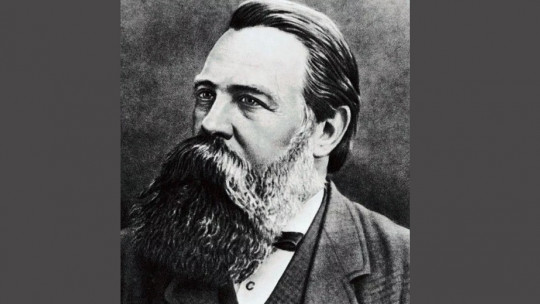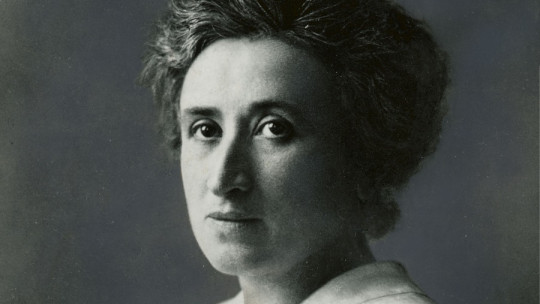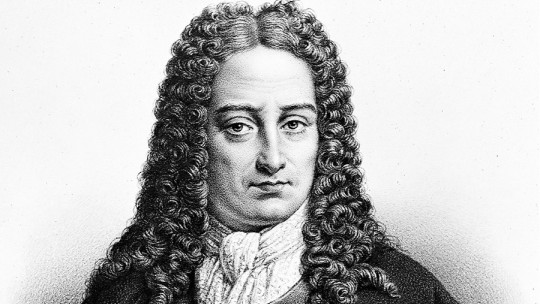Friedrich Engels (1820-1895) was the German philosopher and politician who founded modern communism along with Karl Marx. Some authors consider that the key to understanding Friedrich Engels’ thought is precisely his biography, because it was his youthful development that marked much of his work.
Next we will a brief review of the biography of Friedrich Engels and we point out some of his works and main contributions to the philosophical, political and economic thought of the 20th century.
Friedrich Engels, biography of a revolutionary
Friedrich Engels was born on November 28, 1820. He was the eldest of eight children and belonged to a family that owned mills in Barmen, a northern area of Prussia that is currently part of Germany, and which had important industrial development at that time.
Son of a textile manufacturer, Engels He soon became concerned about the general conditions of manufacturing industries and the situation of the working class During his adulthood he worked in this sector, which inspired him to start writing some of his main works.
Although he had been raised in a Protestant family, Engels came closer to atheistic beliefs. The latter caused some conflicts with his parents and especially with his mother.
The same thing happened when he had to leave school and his father sent him to work as an office worker in a commercial house. Both his mother and father expected him to pursue a business career, just as they had done. However, Engels was already developing some activities that were considered revolutionary and inciting collective organization which disappointed his parents again.
In 1844 he met Karl Marx in Paris, just before settling in England after some failures of the revolutions of the same decade. In fact, during his stay in England, Engels He worked for the textile industry where his father was a shareholder The latter considered that perhaps if Engels worked in said industry, this would serve to appease the radical teachings he had received at school.
Engels He continued to work alongside Marx many years later even helped him finance the first volume of his main work: Capital (Das Kapital), in 1867 and provided him with a livelihood, given that Marx had serious difficulties living independently due to the tax imposed on him by large families. with power over the economy and politics.
Most important work and intellectual contributions
There are many debates about Engels’ relationship with Hegelian philosophy from before 1850, as well as about his relationship with his working-class capitalist family. He even signed some of his works under the pseudonym Friedrich Oswald, to avoid connecting his Protestant and business family with the provocativeness of his writings.
Among other things, Friedrich Engels contributed very important discussions on some notions about nationality, military and scientific affairs, industrial operations. And perhaps two of its greatest contributions to the philosophical tradition of the West are historical materialism and dialectical materialism
Likewise, Engels positioned himself against the institution of marriage because he considered it unnatural and unjust. He maintained this conviction despite his long relationship with Mary Burns, who also helped him enter the working class of England.
Several of the observations and notes he made about the British working class provided key insights into the terrible working conditions they experienced. From there he also became involved with politicians and journalists with whom he shared radical thoughts for the time.
It was not until 1845, when he began to formulate, together with Marx, a materialist interpretation of history, in which he proposed the eventual consolidation of a communist society They spread this same thing through different groups, mainly working class, within Germany, France and England.
Eventually, the London Communist Congress adopted several of his ideas, and authorized him to begin outlining the principles of communism. This is how the first part of the Communist Manifesto (The Manifest der kommunistischen Partei) was published on February 21, 1848. This text is primarily written by Marx, but includes many of Engels’ definitions of communism.
Other key texts and important books by Engels
The first work published by Engels was not an academic text, but was a poem titled The bedouinwhich was included in the 1838 edition of Bremisches Conversationblastt.
His most popular work began in the 1840s, with The Holy Family (1844), which was a critique of the “young Hegelians” , which was a very popular academic circle evidently influenced by the philosopher Georg Wilhelm Friedrich Hegel Hegel. Later he published The situation of the working class in England (1845), which contains several of the beginnings of socialism and its development, which is why it is considered one of the classic texts.
He later published the work From utopian socialism to scientific socialism (1880), where he criticizes socialist utopias and offers an explanation of capitalism from the development and social and economic progression understood by historical materialism.
Finally, publish The origin of the family, private property and the state (1884), where he contextualizes capitalism with the institution of the family. This work was developed in the stage that is considered the peak of Engels’ intellectual development, and contains a powerful historical vision of the family in relation to the issues of class, gender and private property









